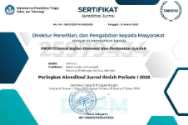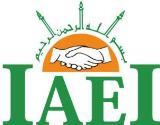AKSELERASI PETUMBUHAN EKONOMI SYARIAH DALAM KONTEKS POLITIK EKONOMI DI INDONESIA
(1) * Wartoyo Wartoyo


 (IAIN Syekh Nurjati Cirebon)
(IAIN Syekh Nurjati Cirebon) Indonesia
(*) Corresponding Author
AbstractBased on statistical data, there is a tendency for a decline in the performance of Islamic banks, which is characterized by stagnation in market share growth that has not reached the target in recent years. There are several factors that are suspected to be obstacles to the development of the Islamic banking industry in Indonesia, ranging from the inadequacy of human resources to the ambivalence between the concept of sharia and operations in the field. The complexity of the problem has an impact on the low public trust about the existence of Islamic banks among conventional financial institutions. As a result, the enthusiasm and response of the public towards Islamic financial products and services in the banking sector, insurance, capital markets and other sectors have become flat, and instead become an obstacle to the growth of assets and market shares of the Islamic financial industry. For this reason, cooperation between stakeholders is needed so that the problems in the development of Islamic banks are not only sourced from one aspect, but almost all aspects from upstream to downstream, starting from regulation, human resources, product quality, quantity of Islamic banks and also the level of education and public understanding. the product is still very minimal can be resolved properly to support the sustainability and development of the Islamic economy. |
Full Text: PDF
Refbacks
- There are currently no refbacks.
Copyright (c) 2022 Wartoyo Wartoyo
This work is licensed under a Creative Commons Attribution-NonCommercial-ShareAlike 4.0 International License.
Published by Islamic Faculty of Nurul Jadid University, Probolinggo, East Java, Indonesia.





.jpg)



